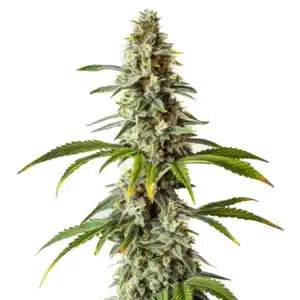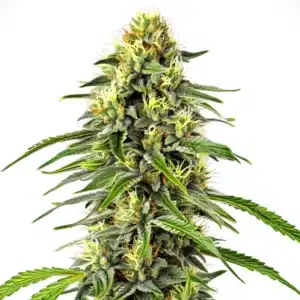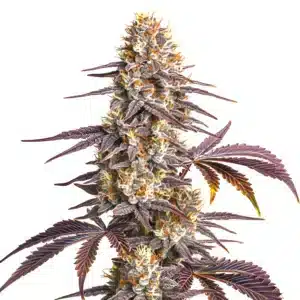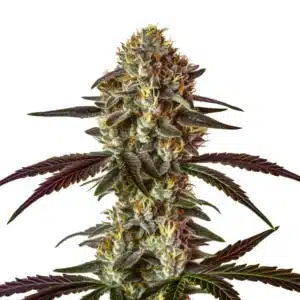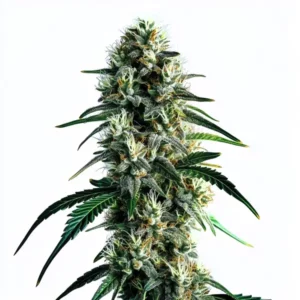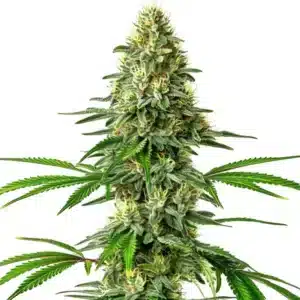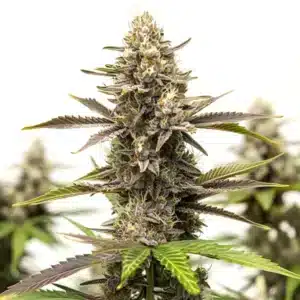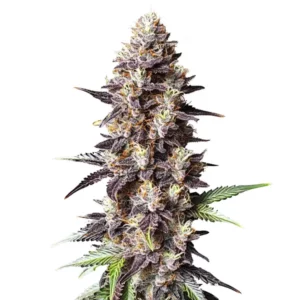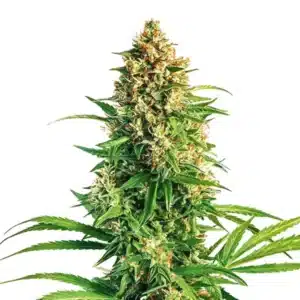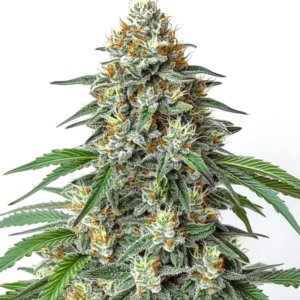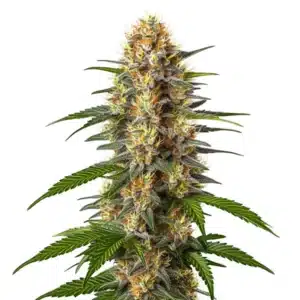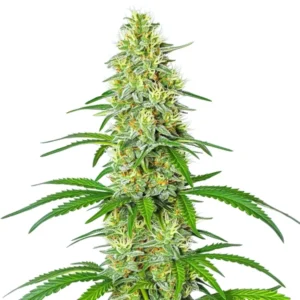
Cannabis for Mental Illness Treatment: Analysis
Overview of Cannabis for Mental Illness Treatment
Historical Context and Traditional Uses
Ancient cultures often turned to herbal remedies to ease emotional distress. Historical records show that many traditional healing practices included natural cannabis extracts to help calm the mind and support mental balance. These early methods laid the foundation for using plant-based treatments in cases of emotional imbalance. Over centuries, these traditions influenced later approaches in which cannabis for mental illness treatment became a subject of renewed interest.
In many traditional societies, natural remedies were the primary method of managing mental unrest. Herbal infusions and tinctures, often containing cannabis, were administered to soothe anxiety and uplift the spirit. The long-standing use of these natural therapies demonstrates that cannabis for mental illness treatment has deep historical roots, providing a supportive element in achieving emotional stability through natural means.
Recommended Strains
Diesel
|
|
THC | 12% - 21% (Medium) |
|
|
Type | Feminized |
|
|
Yield | High |
|
|
Phenotype | 30% Indica / 70% Sativa |
Diesel Autoflower
|
|
THC | 10% - 15% (Low) |
|
|
Type | Autoflowering |
|
|
Yield | Medium |
|
|
Phenotype | 40% Indica / 60% Sativa |
Contemporary Approaches in Mental Health
Modern approaches to mental health increasingly incorporate natural therapies alongside conventional methods. Cannabis for mental illness treatment now appears in various forms, such as oils and capsules, designed to support patients experiencing anxiety and depression. Clinical settings occasionally consider these natural products as complementary measures to standard treatments. Such integrative strategies offer a promising adjunct to improve overall mental well-being.
Recent trends highlight that many practitioners now recommend natural cannabis products to support mental health. Patients who integrate these products with their prescribed treatments often report a calming effect and reduced symptoms. This integrative approach in cannabis for mental illness treatment reflects a broader shift toward holistic care, where natural solutions work in tandem with conventional methods to promote emotional balance and daily resilience.
Promos & Deals
Scientific Insights
Neurobiological Mechanisms of Cannabinoids
Laboratory studies show that cannabinoids interact with receptors in the brain, affecting neurotransmitter activity linked to mood regulation. These scientific findings indicate that cannabis for mental illness treatment may help modulate stress and anxiety by promoting a balanced neural environment. Research on these mechanisms reveals that natural compounds can alter brain chemistry in ways that support emotional calm.
Detailed research indicates that specific cannabinoids engage with the endocannabinoid system, which plays a key part in regulating mood and stress responses. This interaction helps reduce overactive signals associated with anxiety and depressive states. The scientific basis for cannabis for mental illness treatment rests on these neurobiological effects, which offer a potential pathway for natural support in mental health care.
Clinical Research and Efficacy Data
Several clinical studies have examined the benefits of natural cannabis products in managing mental health symptoms. Data from these trials suggest that cannabis for mental illness treatment can alleviate symptoms such as anxiety and mood instability in some patients. Although results vary, the clinical evidence supports its use as a complementary measure alongside conventional treatments. This research provides measurable data on dosage and patient response.
Integrative Strategies for Mental Health Management
Combining Cannabis with Conventional Therapies
Many healthcare providers now incorporate natural cannabis products alongside traditional treatments for mental health. Cannabis for mental illness treatment, when combined with prescribed medications or therapy, may help lessen symptoms such as anxiety and mood swings. Additionally, emerging research suggests that cannabis oil treatment for epilepsy may offer therapeutic benefits, further highlighting the potential of cannabinoids in neurological and psychological care. This integrative approach leverages the natural benefits of cannabinoids to support overall mental stability while complementing established care methods.
Clinicians frequently recommend that patients consider combining natural cannabis products with their current treatment plans. This integrative strategy in cannabis for mental illness treatment aims to reduce adverse symptoms without replacing conventional therapies. By coordinating both approaches, healthcare teams can provide a balanced and supportive regimen that targets emotional and psychological well-being effectively.
Tailored Dosage and Delivery Methods
Effective management of mental health conditions using natural therapies requires personalized dosage and delivery methods. Healthcare providers often adjust cannabis for mental illness treatment according to each patient’s specific needs, starting with low doses and gradually increasing as necessary. Options include tinctures, edibles, and vaporized forms, each offering unique benefits for absorption and effect.
Individualized treatment plans are critical to achieving optimal results. Practitioners emphasize that no single dosage fits every patient, so tailored approaches are necessary to maximize benefits and minimize side effects. By focusing on customized delivery methods, cannabis for mental illness treatment becomes a versatile tool that can be finely tuned to support each patient’s mental health journey effectively.

Safety, Quality, and Regulatory Standards
Legal Considerations and Quality Control
Strict regulatory frameworks govern natural cannabis products to ensure they meet high safety and quality standards. Manufacturers must adhere to rigorous testing protocols that verify purity, potency, and the absence of contaminants in products used for cannabis for mental illness treatment. Legal guidelines help maintain consistency and protect consumers by enforcing standards across cultivation, processing, and packaging.
These quality control measures are critical for building trust in natural therapies. Consumers rely on certified products that meet established regulatory benchmarks. Through continuous monitoring and regular audits, the industry upholds standards that ensure every product is safe for use in cannabis for mental illness treatment. Transparent legal processes also help providers make informed recommendations for integrating these therapies into patient care.
Guidelines for Safe Usage and Storage
Safe usage practices are essential when incorporating natural therapies into mental health treatment. Patients using cannabis for mental illness treatment should follow dosage instructions provided by healthcare professionals and store products properly. Recommendations include keeping products in cool, dark places to preserve potency and prevent degradation. These guidelines help ensure that natural treatments remain effective and reduce the risk of unintended side effects.
Industry Trends and Market Innovations in Mental Health
Product Developments and Consumer Preferences
The market for natural therapies has seen significant advancements in recent years. Manufacturers now develop innovative formulations tailored for cannabis for mental illness treatment, with improved extraction techniques and precise cannabinoid profiles. Consumer preferences increasingly favor products that are lab-tested and transparent about their composition. These developments reflect a growing demand for high-quality natural options in mental health care.
Industry trends reveal that patients are more informed about product quality and safety, leading to increased demand for premium natural cannabis products. Companies invest in research and development to create effective formulations that align with modern consumer expectations. The continuous improvement in product design contributes to a robust market for cannabis for mental illness treatment, offering reliable support for those seeking natural mental health solutions.
Policy, Advocacy, and Community Engagement
Legislative changes and policy updates play a significant part in shaping the market for natural cannabis products. Advocacy groups and industry stakeholders work together to promote safe access and improved regulatory standards for cannabis for mental illness treatment. These efforts ensure that natural therapies receive proper oversight and are integrated responsibly into health care systems.
Engagement with community and policy discussions highlights the increasing acceptance of natural cannabis products in mental health care. Industry leaders actively participate in forums and discussions, contributing to policy changes that benefit public health.
In-Depth Discussion
This discussion spans various dimensions, from historical roots to modern scientific research, integrative strategies, and market innovations. Researchers and clinicians contribute robust data on how natural cannabinoids interact with brain receptors to support emotional stability. The conversation also covers best practices in dosage, safe usage, and quality control, all of which build a strong case for the adjunctive use of natural therapies in mental health care.
By combining insights from diverse fields, stakeholders have developed comprehensive approaches to incorporate natural cannabis products into mental health regimens. These strategies emphasize measurable benefits in reducing symptoms such as anxiety and mood swings.
Additional Insights
Additional insights emerge as ongoing research and market analyses yield new data on natural therapies. Improved cultivation techniques and advanced extraction methods have resulted in products with more consistent cannabinoid profiles. Healthcare providers increasingly rely on updated research findings to refine treatment protocols. These additional insights help optimize the effectiveness of cannabis for mental illness treatment, ensuring that natural products deliver measurable benefits and enhance quality of life.
Recent data from clinical studies show that specific natural cannabis products can mitigate symptoms associated with anxiety and depression. As research evolves, practitioners adjust their treatment strategies to incorporate these findings effectively. The integration of updated market insights and scientific data contributes to a more nuanced approach in using natural therapies. This evolving body of information ensures that cannabis for mental illness treatment remains a dynamic and reliable supportive option for patients.
Practical Considerations in Using Cannabis for Mental Illness Treatment
Patient selection and tailored treatment plans are essential when considering natural therapies for mental health. Such individual assessments ensure that the treatment complements traditional methods effectively while minimizing potential risks. This personalized approach enables patients to achieve better emotional balance through careful use of natural products.
Integrating cannabis for mental illness treatment into overall health management requires collaboration among various care professionals. Doctors, therapists, and nutritionists work together to develop comprehensive treatment plans that include natural therapies. Regular monitoring and adjustment of dosages ensure that these products remain effective and safe over time. This coordinated approach supports sustainable mental health improvements and offers patients a well-rounded strategy to manage their symptoms.
Current Research and Perspectives
Ongoing research into natural therapies continues to yield valuable insights into the effectiveness of cannabis for mental illness treatment. Scientists conduct laboratory studies and clinical trials to assess how cannabinoids affect brain chemistry and emotional regulation. Data from these investigations provide promising evidence that natural products can support conventional treatments. Researchers examine dosage, product consistency, and long-term effects to refine therapeutic strategies.
Clinical perspectives evolve as more rigorous trials and patient data become available. Oncologists, psychiatrists, and other specialists increasingly incorporate natural cannabis products into their treatment regimens based on emerging evidence. This evolving research highlights the potential benefits of integrating natural therapies with standard care. Researchers collect detailed data on patient outcomes, ensuring that cannabis for mental illness treatment delivers consistent support while maintaining high safety standards.

FAQs about cannabis for mental illness treatment
What benefits does cannabis for mental illness treatment offer?
Cannabis for mental illness treatment may help alleviate symptoms such as anxiety, mood swings, and stress. Clinical studies suggest that natural cannabinoids can support emotional balance and reduce overall distress when used appropriately alongside standard care. Many patients report improved daily functioning and a more stable mood after incorporating these natural products into their routines. This supportive therapy provides additional comfort and may enhance overall mental well-being.
How do experts determine the optimal use of cannabis for mental illness treatment?
Experts determine the best approach by analyzing cannabinoid profiles, reviewing clinical trial data, and monitoring patient responses. They assess the safety, dosage, and formulation of natural products to recommend a personalized treatment plan. Healthcare providers adjust dosage and administration methods based on individual needs. This process ensures that cannabis for mental illness treatment effectively complements conventional therapies while providing measurable support for reducing anxiety and mood fluctuations.
What safety protocols are followed when using cannabis for mental illness treatment?
Healthcare professionals enforce strict safety protocols by requiring products to undergo extensive laboratory testing for purity, potency, and contaminants. Regulatory agencies set comprehensive quality standards, and manufacturers adhere to rigorous production guidelines. Patients receive clear instructions on dosing, storage, and usage to minimize risks. These measures ensure that cannabis for mental illness treatment is both safe and effective as a supportive therapy, protecting patient health while enhancing overall treatment outcomes.


